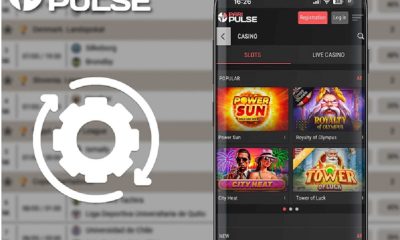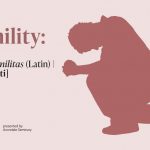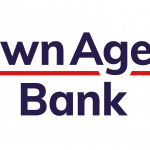Feature/OPED
How Technology is Pumping up Business in 2021: 3D Offices, 4G on the Moon, Gamification of Everything, and 6 More Hot Trends

Research firm Wunderman Thompson Intelligence has released its 2021 trends report.
The report contains 100 predictions about how technology will affect different areas of life and business: culture, commerce, sports (for example, how the best online sports betting apps will change), and others. We have selected the most interesting of them – let’s see how the world has changed and will change this year.
A Revolution in the Gaming Industry and the Rise of Cloud Gaming
The consumer gaming industry is growing rapidly – the market is expected to reach $198 billion by 2024, and that’s not including sales of augmented and virtual reality hardware. Digital games are beginning to be used at events and concerts as an element of audience engagement. Traditional gaming spaces are turning into places where people can gather and communicate remotely, including solving business issues.
For example, Unconventional launched in 2020 as a virtual event space with 3D participant avatars and game worlds, and it now has 50,000 users. It is widely used, from business meetings to birthday parties. Since offline events are inaccessible because of the pandemic, people have developed a demand for online events that involve unique user experiences they previously had in games.
Games could change the world over the next decade and become the dominant technology platforms as social media used to be.
Meanwhile, big companies are betting on cloud gaming. For example, Facebook has added cloud games to its gaming platform, and China’s Tencent (the developer of the messenger WeChat) has teamed up with telecommunications company Huawei to develop its own cloud gaming platform.
Tech companies are investing in cloud-based streaming games because they are the future: It is more convenient for users to access the game on-demand and from any device. Companies save on deploying their own infrastructure to host gaming applications.
Virtual Sports and Gamified Fitness
In 2020, due to the pandemic, many sports competitions were cancelled and live sports events disappeared, which led to the convergence of real and virtual sports with cybersports.
For example, racers were already using simulators to train, now brands are entering the market with solutions for virtual races in which amateurs can participate. Aston Martin released a $76,300 AMR-C01 racing simulator in September.
Zwift, an online cycling and running training platform, held the first Tour de France international cycling race in virtual mode. Professional and amateur athletes participated. Athletes competed for prizes, while amateurs were able to compare their strengths with the professionals by competing with them on the same courses.
And Adidas released a smart sneaker insole that records physical data while playing real soccer: the number and strength of kicks, running speed, and so on. These stats can be uploaded to the EA Sports FIFA Mobile game and compare your results with other players.
In 2021, this trend will continue and traditional sports will continue to merge with virtual sports.
Fitness, too, is moving from the real world to the virtual. In April 2020, Oculus and Within released a new VR fitness app, Supernatural. It provides users with personalized virtual workouts surrounded by stunning scenery.
The Future of Mixed Reality
Mixed Reality (MR) is the union of virtual and real worlds. Virtual objects are added to the world around you that look like the real world. For example, a virtual painting on a real wall in a room is a mixed reality.
Adaptability and ease of use have made mixed reality a new trend in the gaming industry. Virtual reality (VR) equipment is expensive and cumbersome, and augmented reality (AR) is dependent on mobile devices. According to Mordor Intelligence, the mixed reality market was valued at $382.6 million in 2019 and will grow further.
In October 2020, Nintendo released a new game called Mario Kart Live: Home Circuit. Participants in the game compete on remote-controlled cars inside their homes, interacting with elements of the virtual and real worlds.
Indian telecommunications giant Reliance Jio announced Jio Glass mixed reality glasses, and Facebook and Google have already invested in the company. Judging by the patents filed, a similar device will soon be released by Apple.
Mixed reality is an attractive solution for enhancing the user experience. It may soon be used in most entertainment spaces and events.
Contactless Air Travel
Airlines and airports are adopting contactless ways to interact with passengers wherever possible. They’re aiming for passengers to use mobile apps instead of publicly available touchpads and contact airport staff. This avoids queues and crowds.
For example, more companies have begun sending advance notice of flight delays or cancellations, introduced contactless check-in and luggage tag printing, and implemented meal pre-ordering and online payment. And some airports are introducing a system that allows boarding passes to be scanned at a distance of more than 1.5 meters.
Companies are also thinking about places on the plane where you can’t do completely without touching, such as restrooms and in-flight entertainment systems. There aren’t any innovations yet, but designers are trying to rethink these approaches and keep the number of touches to a minimum.
Technology Conquers Space
The leading technology brands are beginning to explore space. NASA and Nokia are planning to deploy a 4G network on the Moon. This will improve data transmission and help astronauts control moonwalkers, navigate in space, and broadcast video in real-time.
Cloud technology is also moving beyond our planet. Analysts predict that by the end of the decade, total revenue from space-related cloud services could be about $15 billion. New cloud computing services can be deployed using low-orbit spacecraft and traditional satellites.
Virtual Offices Instead of Real Offices
Remote working is becoming the norm. Many companies are rethinking this work format, offering new and unusual solutions.
For example, Dropbox announced that it is now becoming virtual-first, meaning that it is primarily focused on virtual workspaces and is abandoning its real offices. This is unusual because the company signed the largest lease in San Francisco history in 2017, and will now rent out the space itself.
Other companies are creating virtual offices where employees can walk around familiar spaces, attend meetings and just gather for coffee and conversation.
In April 2020, Sine Wave Entertainment launched Breakroom, a virtual world product for remote workplaces that provides 3D offices for companies such as Virgin Group and Torque Esports. Italian energy company Enel gathers employees as avatars in virtual meeting rooms using a combination of augmented and virtual reality technology.
Experts believe that the time of large offline offices is a thing of the past, the time of distributed work is coming.
The Virtualization of Stores Continues
Digital fashion and virtual closets are one of the trends gaining popularity. For example, digital virtualization allows fashion houses to showcase their collections, and brands can create virtual spaces with unique designs.
Virtual fashion house The Fabricant creates unique designs that exist only digitally. Using 3D modelling, they design outfits for customer avatars that can only be worn in digital environments such as games or social media.
Also, the pandemic has led to fewer visitors at car dealerships, so innovative companies are changing the car-buying process by making it easier to choose online.
Buyers of Volkswagen Australia can visit a virtual showroom where they can see how a car would look in different conditions, open and close doors, interact with the interior and, of course, make a purchase. Ford has launched a similar AR service, which allows you to explore the new F-150 car in augmented reality: see it inside and outside, assess how it would look in a parking lot near your home.
Retail continues the transition to online, offering a personalized experience for shoppers who prefer digital technology. Live Commerce is an online sales model where influencers showcase items for sale in real-time. The format has been popular in Asian markets for several years and is now experiencing a global boom. This format now sells everything from doorbells to makeup products.
In June 2020, Canadian e-commerce platform Livescale announced a partnership with Shopify, a popular e-commerce platform in North America. According to Livescale, the number of business inquiries has increased fivefold since March 2020.
The Emergence of Stores Without Shoppers
Retailers are shifting to a store format without shoppers. Such outlets are being served by online retailers. In September 2020, Whole Foods Market opened a store in New York City that is closed to the public. It is for delivery and pickup only. Walmart is repurposing four of its U.S. stores for e-commerce. Other chains are adopting similar solutions.
Those retailers who are still serving customers are challenged by people’s desire to limit contact when they buy. That’s why contactless technology will be developed to simplify the choice of goods.
For example, cosmetics stores already offer customers virtual makeup: mirrors allow them to “try on” lipstick, and artificial intelligence will help pick out shadows that best match the shade of the buyer’s skin.
Developments in Delivery Technology and Electric Transportation
Thanks to the growth of e-commerce in 2020, the delivery industry has also seen rapid growth. According to a study by the World Economic Forum, the growth in e-commerce demand will lead to a 36% increase in delivery vehicles in the world’s 100 largest cities by 2030.
The Consumer Electronics Show was held in January 2021, where companies showcased their new developments in delivery:
- Skyward and UPS Flight Forward organized drone delivery.
- Cenntro Automotive Group unveiled the CityPorter electric vehicle, which is designed to drive around town and deliver goods to customers.
- General Motors has launched a new business line for delivery, BrightDrop. It is an entire ecosystem of electric vehicles, through which companies can reduce costs and be more environmentally friendly. The first customer is FedEx Delivery Service, which will get BrightDrop EV600 electric vans in late 2021.
- FedEx Express CEO Richard Smith said the pandemic has greatly accelerated e-commerce and door-to-door delivery. He believes the sector will continue to grow and by 2023, 100 million parcels a day will be delivered to U.S. residences. Before the pandemic, that growth was projected only by 2026.
There is other evidence that the electric transportation market will grow. For example, in January 2020, the British company Arrival received an order for 10,000 electric vehicles from UPS, and also hopes to receive an $85 million investment from Hyundai to develop production. And in December 2020, U.S.-based Canoo published plans for an “all-electric multi-purpose delivery vehicle,” expected to be released in 2023.
Feature/OPED
A Lesson in Humility

By Tony Ogunlowo
Recently, a young Nigerian man did something thousands of people wouldn’t do in a million years.
He gave up everything he had, and was, to become a Catholic priest.
What makes Rev Father Chris Orajiaka’s story very fascinating is what he gave up to enter the seminary and priesthood: highly educated, he has two degrees, a multi-million Naira business with all the trimmings expected of a successful young man.
Some people might think he’s mad or his village people have been working overtime but before we start judging his decision to answer a calling perhaps we should muse on the saying “What does it profit a man…”.
We spend every waking moment of our lives chasing a fast buck so that we can afford the finer things life has to offer, but at what cost? Enough is never enough: soa man with 5 cars in his garage still wants another one, a woman’s wardrobe is outdated before the end of the season and she needs new ones, before we can fully work iPhone 15 we’re rushing out to buy iPhone 16 and somebody with a billion dollars in the bank wants billions more.
As a result, we end up trapped in this cycle of forever wanting more and more and this becomes our lives with a majority of our material acquisitions acquired mainly for show or public validation. Don’t get me wrong we do ‘need’….there are bills to be paid and stuff like that. The basic requirements of life still need to be met.
The strange thing is that the minute we draw our last breath everything we spent a lifetime accumulating ceases to be ours: everything, the cars, houses and money now becomes the property of who ever its willed to…or in Naija, where wills are non-existent or ignored, whoever grabs the most. All that sweat, hard work, hard earned money and it now belongs to somebody who didn’t work for it.
So, when somebody walks away from it all to live a life of religious poverty, Chasity and sometimes silence, it raises eyebrows. The turning point is when you’ve got it all and graduated from the ‘wanting-more’ phase and realise there is a void in your life: something is missing, a void all your material possessions can’t fill.
At this point you start to question the reason for your existence (- something us old folk do when we reflect back on our lives and wonder what it was all about). And all these questions inevitably lead back to why God, the Supreme Being, really put us on Earth. Shakespeare’s words of “….all the world’s a stage, and all the men and women merely players..”.comes to mind.
But why?
Why is ‘why’ some people will leave everything earthly behind to worship a God, a supreme being, they’ve never seen but believe exists to try and understand what his will really is and how best to achieve it. The quest for knowledge – and wisdom – to connect with God is the only thing that can fill in the void and explain our existenceand the result is a more fulfilling life.
It’s not all about swanning around in a Rolls Royce and private jets and dancing to whatever tune society demands you dance to. (SM is full of people trying to live up to the whims of their ‘public’). It’s one of the reasons a lot of A-listers and top people are not happy: they may seem happy because they seem to have it all but inwardly they’re not. Money can’t buy everything. There will always be something missing from their lives they can’t buy like inner peace and contentment being top of the list.
Now not all of us can drop everything and enter the clergy because we’ve got an inward desire to know more about God and our existence, because we’ve got families, friends and acquaintances who depend on our very existence. Again, being an ordinary person, outside of the priesthood, walking around with nothing – and celibate – will garner some strange looks – and remarks!So, living like a monk or priest, outside of the profession, is out of the question.
So how do we make the God-like connection?
Simple. Cut down on the material acquisition obsession (- aka ‘Superceding the Jones’s!) and become more minimalist which in turn cuts down on the stress and ultimately frees the mind to explore its Higher Consciousness which in turn fills in the void, the emptiness, you experience when you’re alone behind closed doors.
And to answer the original question as to why a young man would give it all up to become a celibate Rev Father: I think he did it because he’s seeking a more meaningful life that money can’t buy. Something beyond the fast rat race.
Think of how enriched your life can be if you can escape, or control, the clutches of the Spirit of Materialism.
You can follow Tony Ogunlowo on Twitter: @Archangel641 or visit
http://www.archangel641.blogspot.co.uk
Feature/OPED
How Digital Tools Are Democratising Wealth Creation
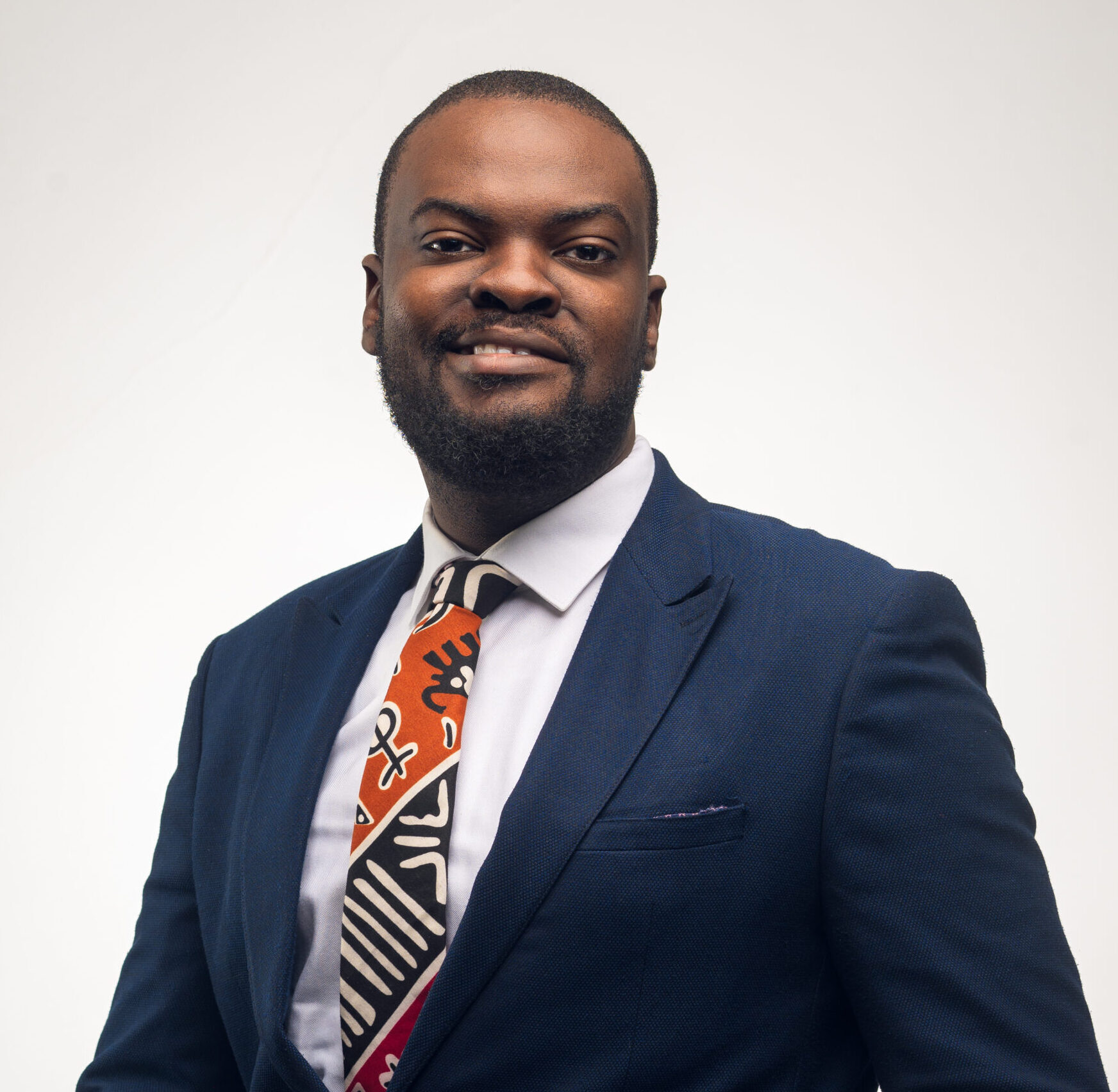
By Olufemi Yoloye
I vividly remember my first investment experience. It was 2008, and I was concluding my SIWES program in one of the leading Oil & Gas companies. Armed with three months’ salary and a burning desire to grow my wealth, I walked into the imposing headquarters of a leading stockbroking firm in Abuja. The marble floors, suited executives, and hushed tones immediately made me feel like I was intruding on a private club.
After waiting for nearly two hours, I was finally ushered into a wood-panelled office where a broker, barely looking up from his newspaper, asked for my minimum investment of ₦500,000 – equivalent to about $3,700 at the time. When I explained I only had ₦19,000, he dismissed me with a wave of his hand, suggesting I “come back when I was serious about investing.” That day, I learned that wealth creation wasn’t just about having money; it was about having access to the right networks, information, and platforms.
Two decades later, the investment landscape has undergone a seismic shift. The digital revolution that transformed how we communicate, shop, and work has finally reached Nigeria’s capital markets. Today, a fresh graduate in Ibadan can open an investment account from her phone, buy shares of blue-chip companies with as little as ₦100, and access the same real-time market data that was once the exclusive preserve of institutional investors.
The Digital Advantage: Real-Time Democracy
Digital investment platforms have fundamentally democratised three critical aspects of wealth creation: access, information, and cost. In the past, investing often meant physically visiting a stockbroking office during business hours. Today, digital platforms operate round the clock, offering unprecedented flexibility. Where investors once waited for next-day newspaper updates or quarterly statements, real-time data now delivers market insights instantly, placing decision-making power directly in the hands of everyday users.
Consider the transformation in information access. In the pre-digital era, research reports were expensive, exclusive documents shared only among high-net-worth clients. Today, algorithmic analysis, automated portfolio recommendations, and comprehensive market research are standard features on most investment apps. The playing field has levelled in ways that would have been unimaginable just a decade ago.
The convenience factor cannot be overstated. Digital platforms have eliminated the intimidation factor that kept many potential investors away from capital markets. Users can now learn about investing through gamified experiences, practice with virtual portfolios, and gradually build confidence before committing real money. This educational approach addresses one of Nigeria’s most persistent challenges: the knowledge gap that historically drove people toward riskier, informal investment schemes.
Cost efficiency represents another revolutionary change. Traditional wealth management services typically required minimum investments of millions of naira and charged hefty fees. Digital platforms have shattered these barriers, allowing fractional ownership of expensive assets and charging minimal fees through automated processes. Commercial paper, government bonds, and equity funds that were once accessible only to institutional investors are now within reach of the average Nigerian.
The Friction Points: Where We Still Fall Short
Despite these advances, significant challenges continue to hinder widespread adoption of digital investment tools in Nigeria. The statistics are sobering: despite a population exceeding 200 million, fewer than 1% of Nigerians participate in collective investment schemes like mutual funds. This represents not just a missed opportunity, but a fundamental failure to create an inclusive financial ecosystem.
The first major friction point is fragmentation. The current landscape requires users to juggle multiple applications for different investment needs. Someone might use one app for stock trading, another for mutual funds, a third for fixed deposits, and yet another for insurance. This scattered approach creates confusion, increases transaction costs, and ultimately discourages participation. The cognitive load of managing multiple platforms, each with its own interface and requirements, can be overwhelming for new investors.
Payment infrastructure remains another significant barrier. While mobile apps have revolutionized basic financial services, the integration between payment systems and investment platforms often lacks seamlessness. Users frequently encounter failed transactions, delayed settlements, and complex reconciliation processes that erode confidence in digital investing.
Low financial literacy continues to plague the sector. Consider this: the total size of Nigeria’s public mutual fund industry is just under ₦6 trillion, with fewer than 900,000 unit holders – in a country of over 200 million people. In contrast, over ₦1.3 trillion was recently lost to a single high-profile Ponzi scheme. This stark contrast highlights the scale of financial literacy and trust challenges we still face. It’s not just a trust gap – it’s a trillion-naira opportunity cost. While digital platforms have made information more accessible, they haven’t necessarily made it more comprehensible. Many apps overwhelm users with technical jargon, complex charts, and investment options without adequate explanation. The result is that potential investors either avoid the platforms entirely or make uninformed decisions that lead to losses and further discourage participation.
Trust and security concerns compound these challenges. High-profile cases of fintech failures, unauthorized transactions, and data breaches have made many Nigerians wary of digital financial services. The nascent regulatory frameworks for digital investment platforms create additional uncertainty. Users want assurance that their funds are protected, their data is secure, and they have recourse if something goes wrong.
Cultural factors also play a role. Many Nigerians still prefer the human interaction and perceived security of traditional banking relationships. The concept of “digital-first” investing conflicts with established patterns of financial behaviour, particularly among older demographics who control significant portions of investible assets.
The Access More Solution: Where Trust Meets Seamless Integration
This is where Access More represents a paradigm shift in how Nigerians can approach wealth creation. Rather than asking users to manage multiple platforms and providers, Access More offers a unified ecosystem for wealth creation. Its greatest strength? Deep integration within Access Bank’s secure and regulated infrastructure.
In financial services, trust isn’t a nice-to-have benefit. It’s the bedrock of all innovation. When users know their investments are backed by a regulated, established financial institution with decades of operational history, they can focus on building wealth instead of worrying about platform failures.
From a single interface, users can access a wide range of investment options – from stocks and bonds to mutual funds, fixed deposits, treasury bills, and even insurance products. This eliminates the complexity of managing multiple relationships and provides a cohesive view of one’s entire financial portfolio. The platform’s unified approach means users can easily move funds between different investment vehicles as their needs and market conditions change.
The payment integration is seamless because it’s built on Access Bank’s robust banking infrastructure. Users can fund their investments directly from their bank accounts, and receive real-time updates on their portfolio performance. The friction that typically accompanies cross-platform transactions is eliminated, making it easier for users to maintain consistent investment habits.
The security framework is enterprise-grade, leveraging Access Bank’s existing cybersecurity infrastructure and regulatory compliance systems. Users benefit from the same security standards that protect institutional banking relationships, including multi-factor authentication, encryption, and fraud detection and prevention. This addresses one of the primary concerns that prevent the adoption of standalone fintech solutions.
Perhaps most importantly, while the platform is designed for digital-first interaction, users can access relationship managers, investment advisors, and customer service representatives when they need personalized assistance. This hybrid approach combines the efficiency of digital tools with the reassurance of human expertise.
Building Tomorrow’s Wealth Creators
The democratisation of wealth creation through digital tools represents more than a technological advancement; it’s a fundamental shift toward financial inclusion. Nigeria’s demographic dividend – with 62% of the population under 24 years old – creates an unprecedented opportunity to build a generation of investors who view capital market participation as normal and accessible.
Digital platforms like Access More are not just making investing easier; they’re reshaping the very concept of who can be an investor. The young entrepreneur in Kano, the teacher in Enugu, and the civil servant in Abuja now have access to the same investment opportunities and information that were once available only to the wealthy elite in Lagos and Abuja.
The key to unlocking this potential lies in creating platforms that are not just digital, but comprehensive, trusted, and integrated. The future of wealth creation in Nigeria will be built by those who can provide holistic financial solutions within secure, regulated environments. Access More represents this future – where technology serves not just to digitize existing processes, but to fundamentally expand access to wealth-building opportunities.
As we move forward, the question isn’t whether digital tools will democratise wealth creation, but how quickly we can scale these solutions to reach Nigeria’s vast population of potential investors. The infrastructure is in place, the technology is proven, and the opportunity is immense. What remains is the execution – and the commitment to building platforms that truly serve the needs of everyday Nigerians.
The boy who was turned away from that stockbroking office in 2003 would find a very different landscape today. More importantly, his children will inherit a financial system where wealth creation is accessible, transparent, and available to all. That transformation is not just good for individual investors – it’s essential for Nigeria’s economic future.
Olufemi Yoloye is the CEO of Coronation Wealth and a champion of financial inclusion in Nigeria’s capital markets
Feature/OPED
Rebuilding the Nigerian Dream: How NOA is Forging a New Social Contract
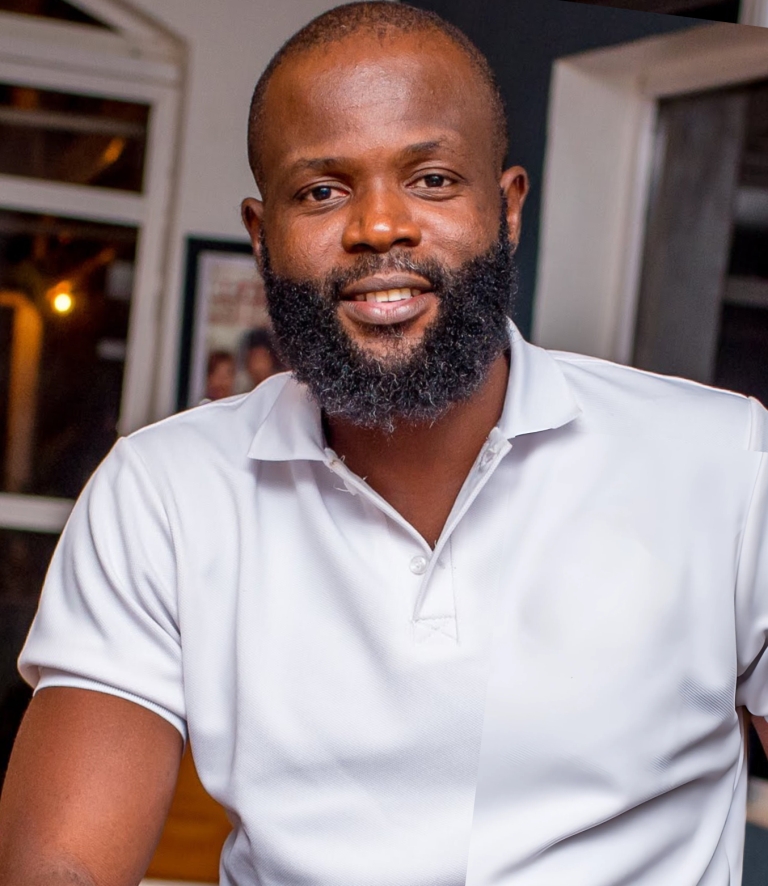
By Victor Benjamin
For years, a pervasive sense of disillusionment has shadowed the vibrant spirit of Nigeria. Eroding trust in governance, fueled by misinformation and a disconnect between policy and public understanding, has cast a long shadow over national progress. However, a significant shift is underway, spearheaded by the National Orientation Agency (NOA). Under the astute leadership of Mallam Lanre Issa-Onilu, NOA is actively working to mend these fractures, acting as a crucial bridge between government aspirations and the people’s commitment. This vital mission aligns seamlessly with President Bola Tinubu’s administration, which profoundly recognizes that the success of any government policy ultimately hinges on the psychological and emotional investment of its citizens.
The Tinubu government isn’t merely observing NOA’s efforts; it’s actively championing them. The administration understands that Nigeria’s journey towards prosperity isn’t solely about economic reforms or administrative directives. It’s fundamentally about fostering a collective embrace of national values and civic duties by every Nigerian. This holistic approach forms the bedrock of a renewed national consciousness, aiming to ignite a sense of ownership and shared responsibility for the country’s destiny.
A cornerstone of this ambitious agenda is the forthcoming National Values Charter, an initiative poised to redefine the relationship between the government and its citizens. Expected to be formally unveiled by President Bola Tinubu himself, this Charter is designed as a foundational social contract. It will meticulously articulate the responsibilities of both the government and its citizens in the arduous yet rewarding task of nation-building.
The Charter will enshrine the “Nigerian Promise”—the government’s unwavering commitment to core principles such as equality, democracy, entrepreneurship, peace, inclusivity, freedom, and meritocracy. This promise outlines the vision for a just and equitable society where opportunities abound for all. Complementing this, the Charter will also introduce a comprehensive “Citizen’s Code.” This code will serve as a clarion call to all Nigerians, urging them to embrace fundamental virtues like discipline, duty of care, tolerance, ethical leadership, accountability, environmental awareness, and resilience. By clearly defining both rights and responsibilities, this comprehensive approach aims to cultivate a deeper sense of belonging and dignity among Nigerians, fostering a citizenry that is not only aware of its entitlements but also deeply committed to its obligations.
In direct support of President Tinubu’s audacious economic reforms and the overarching “Renewed Hope Agenda,” NOA has rolled out several impactful initiatives, designed to demystify complex policies and showcase tangible progress.
One such crucial initiative is The Explainer. Launched in early 2024, this weekly policy-focused publication serves as an invaluable tool for simplifying complex economic shifts. It breaks down intricate topics such as the fuel subsidy removal and exchange rate unification, translating economic jargon into accessible language. The Explainer illuminates how these market-driven reforms are strategically designed to stimulate national productivity, unlock doors for private investment, and enhance Nigeria’s global competitiveness. It clarifies the potential long-term benefits for ordinary Nigerians, including job creation, increased investor confidence, and improved public services. Crucially, the publication also proactively addresses public concerns and immediate challenges, countering the pervasive tide of misinformation and building a much-needed bridge of understanding between the government and its citizens.
Beyond explanation, NOA is diligently working to showcase tangible progress and flip the narrative of cynicism that often plagues public discourse. The agency actively promotes positive stories of ordinary Nigerians who are directly benefiting from recent reforms. This includes heartwarming examples such as students accessing loans from the Nigeria Education Loan Fund, a critical initiative that restores hope and dignity to countless families striving for educational advancement. It also highlights vehicle owners successfully transitioning to Compressed Natural Gas (CNG) as a more affordable and sustainable energy source, and small business owners securing vital loans from the Bank of Industry to fuel their entrepreneurial dreams. NOA emphasizes consistent and transparent communication to counter negativity, demonstrating that “Hope Renewed” is not merely a slogan but is backed by concrete results, including vital improved infrastructure and a commitment to transparent governance through the discontinuation of opaque oil subsidy regimes.
NOA’s efforts extend far beyond direct policy explanations. The agency employs a wide and innovative array of channels to instill a profound sense of ownership and responsibility within the Nigerian populace.
In the digital realm, NOA leverages cutting-edge tools to enhance citizen engagement. The Mobiliser app, for instance, incorporates a vital “Say Something” feature that enables anonymous crime reporting, empowering citizens to contribute to public safety without fear. Furthermore, CLHEEAN, an innovative AI platform, provides real-time, accurate information on critical national issues, notably in local languages, making vital data accessible to a broader audience. CLHEEAN also facilitates anonymous reporting of criminal activities, reinforcing the commitment to a safer society. An interactive, AI-powered website with intelligent chat assistants and an AI engine dubbed “The Curator” further engages citizens, addressing their policy questions and providing access to national data, fostering an informed and participatory citizenry.
Complementing its digital outreach, NOA conducts extensive on-the-ground sensitisation campaigns nationwide. Dedicated NOA teams traverse the country, engaging communities on diverse issues ranging from human rights and tax reform to crucial security awareness and flood prevention. These campaigns utilize dynamic approaches such as roadshows, community forums, and interactive school sessions, ensuring that essential messages resonate and reach every segment of society, from bustling urban centers to remote rural communities.
Strategic partnerships form another critical pillar of NOA’s multi-faceted approach. The agency actively collaborates with the education sector to embed citizenship studies directly into the school curriculum, aiming to instill national values and civic pride in children from a tender age. This foundational approach seeks to mold future generations into responsible and patriotic citizens. NOA also partners with the Voice of Nigeria (VON) to combat the proliferation of misinformation and promote authentic Nigerian narratives, safeguarding the integrity of public discourse. Furthermore, a crucial partnership with the Economic and Financial Crimes Commission (EFCC) facilitates nationwide campaigns against cybercrime, promoting financial literacy and ethical entrepreneurship, particularly among vulnerable youth who are often susceptible to such illicit activities.
Through these comprehensive and multi-faceted approaches, the National Orientation Agency is not just informing Nigerians; it is striving to ensure they are emotionally and intellectually invested in the country’s growth. By fostering a culture of excellence, patriotism, and civic responsibility, NOA is fundamentally transforming how the government communicates with its people. Its ultimate aspiration is to build a just, united, and value-driven Nigeria—a nation built on shared purpose, collective agreement, and a renewed sense of hope.
Victor Benjamin is the West/South South Director of YP4T
-

 Feature/OPED5 years ago
Feature/OPED5 years agoDavos was Different this year
-
Travel/Tourism9 years ago
Lagos Seals Western Lodge Hotel In Ikorodu
-

 Showbiz3 years ago
Showbiz3 years agoEstranged Lover Releases Videos of Empress Njamah Bathing
-

 Banking7 years ago
Banking7 years agoSort Codes of GTBank Branches in Nigeria
-

 Economy2 years ago
Economy2 years agoSubsidy Removal: CNG at N130 Per Litre Cheaper Than Petrol—IPMAN
-

 Banking2 years ago
Banking2 years agoFirst Bank Announces Planned Downtime
-

 Sports2 years ago
Sports2 years agoHighest Paid Nigerian Footballer – How Much Do Nigerian Footballers Earn
-

 Technology5 years ago
Technology5 years agoHow To Link Your MTN, Airtel, Glo, 9mobile Lines to NIN











